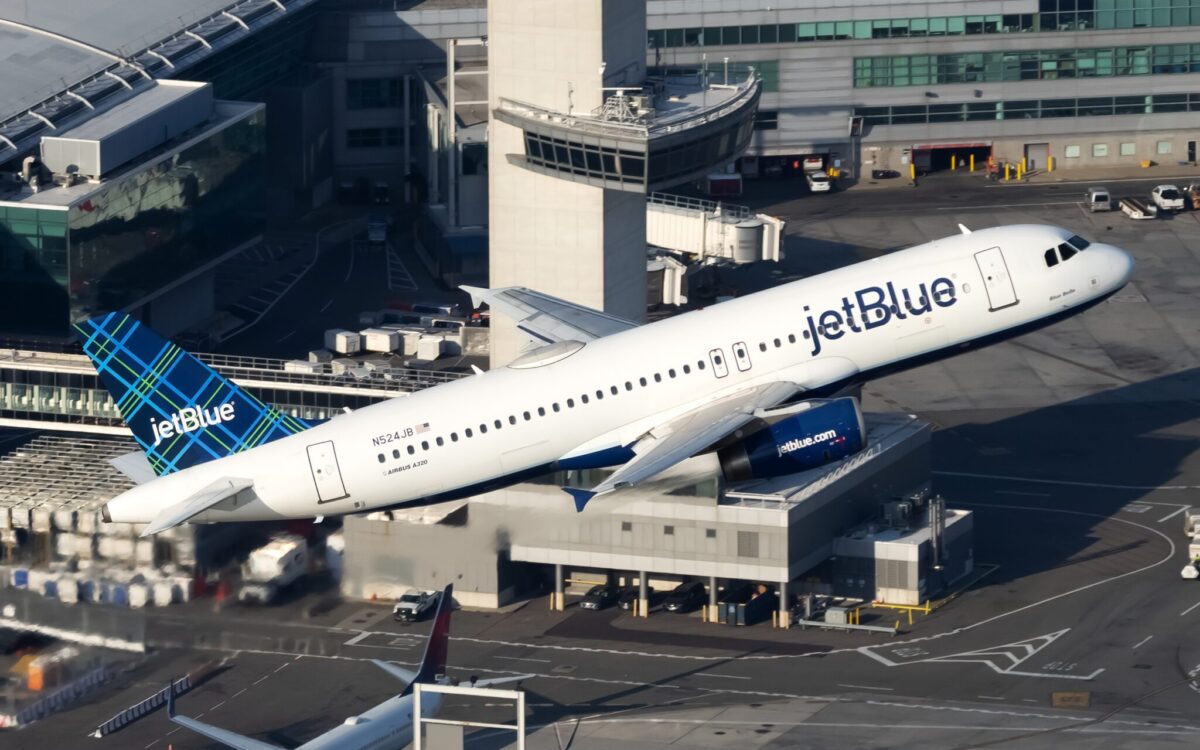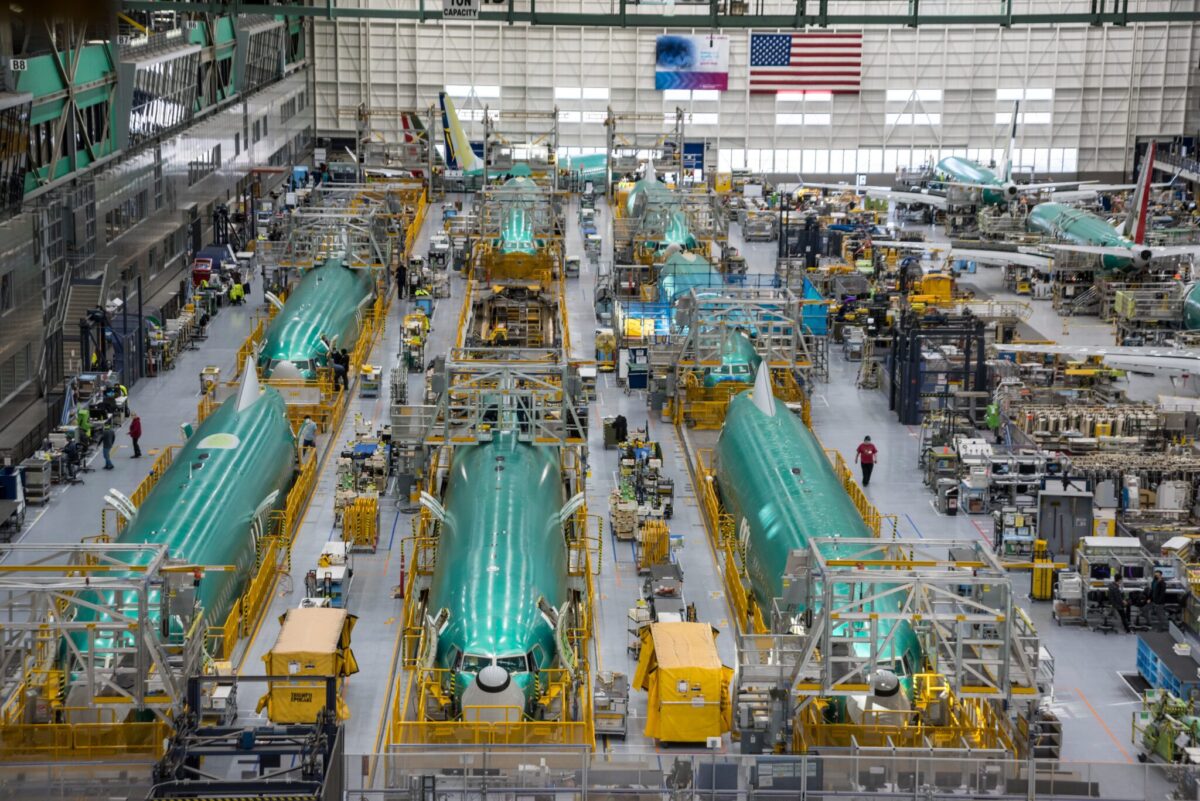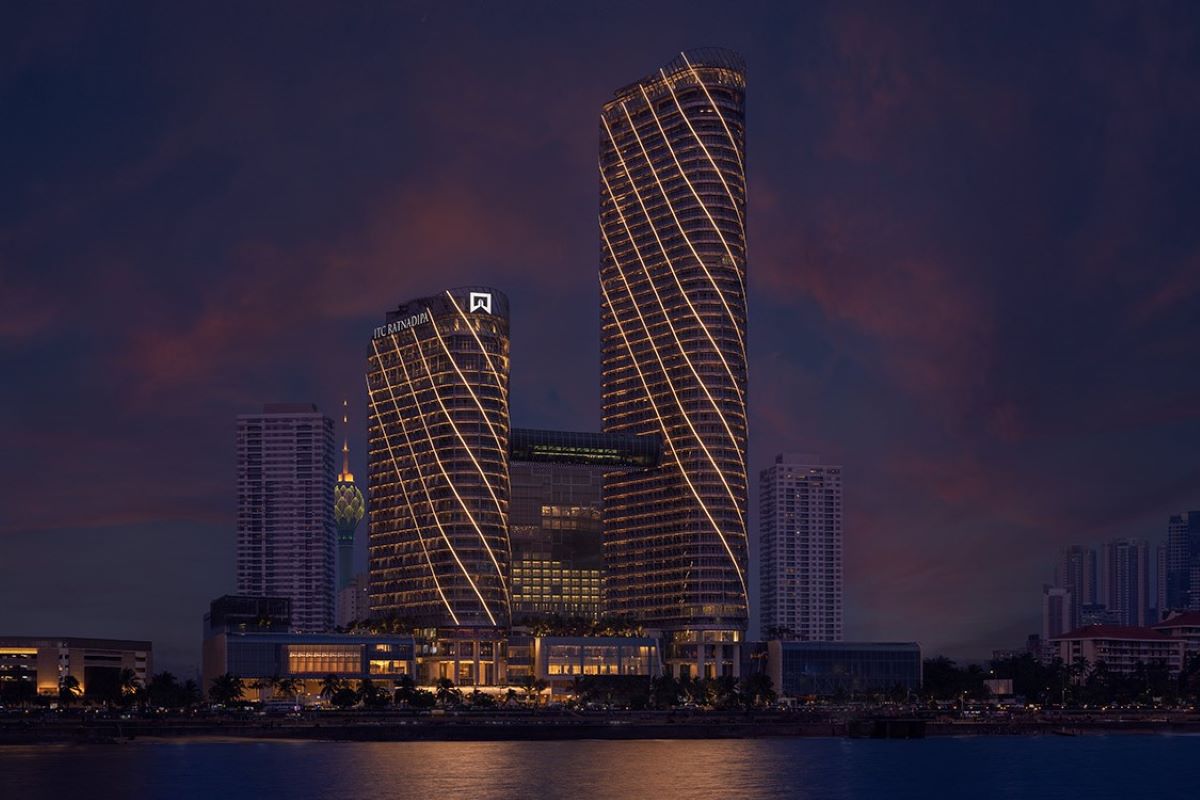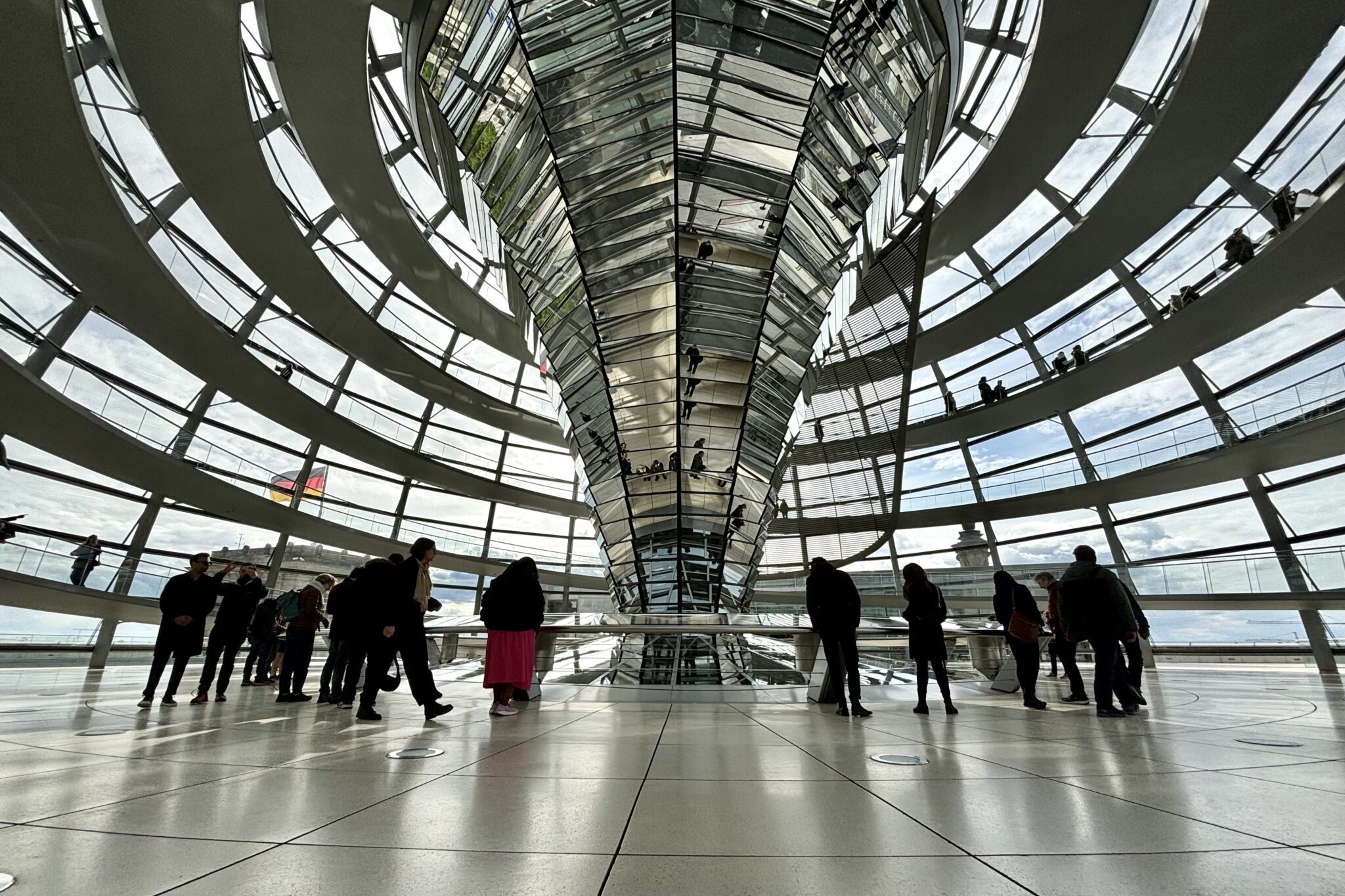Marriott Dabbles With Tech Wizardry to Further Reinvent Brand
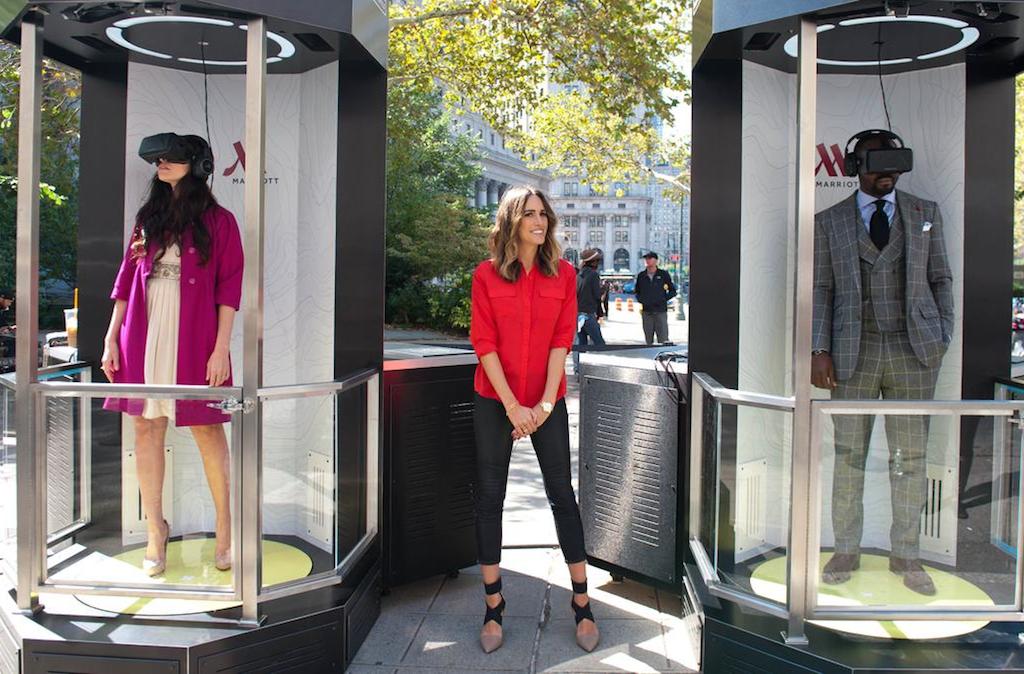
Skift Take
Marriott Hotels has been getting in bed with some interesting high-tech friends to deliver two high-concept hospitality experiences revolving around virtual reality (VR) and an app connecting like-minded hotel guests.
Last week, Marriott unveiled “fully immersive, 4-D virtual journey teleporters” developed around Facebook’s Oculus Rift virtual reality headsets. The CGI special effects crew at London’s Framestore film studio, who created the blockbuster film Gravity, produced the VFX experience inside the headsets. New York-based experiential marketing firm Relevent handled the roll-out.
Initially placed outside City Hall in Manhattan for a five-day trial run, the teleporters are booths outfitted with heat lamps, fans and mist sprayers designed to emulate the sun, wind and ocean spray. Those are activated while people virtually explore a Maui beach and London skyscraper via the Oculus VR.
NYC City Hall was chosen as the first location in order to grab couples married only minutes before to test out the headsets. After New York, the teleporters move out for a road show across America, appearing at a series of seven other Marriott properties and nearby cultural attractions through mid-November.
“Marriott has been leaning in on technology the last year or two, and the real purpose of why we’re doing what we’re doing is not a marketing stunt,” says Paul Cahill, SVP of brand management for Marriott Hotels. “When we started out on this journey, we began thinking if our role in the world as a brand is to host people really, really well—or what we say, ‘brilliantly’—then what would that look like today?”
The big picture here is multifaceted and compelling. For one, Marriott could potentially commercialize the Oculus Rift VR headset, which to date has experienced challenges evolving as a consumer product beyond the gamer industry.
For Oculus to expand its reach into the mainstream, it needs new consumers seeking new types of content, a lower price point, and preferably a little less wonky physical contraption strapped to your head.
That quest for expanded consumer VR is getting closer with new equipment unveiled last week at the first Oculus developer summit.
Second, some of the new VR content development could come in the form of virtual travel experiences. High-level discussions at Marriott revolve around the idea that in the not-so-distant future, consumers will purchase travel based on VR travel content and marketing once the technology is improved and becomes more universally accepted.
“We’re giving people the opportunity to get together and pilot these prototypes, to face the future, look at some future technology, and work together to see which ones they really like,” says Michael Dial, VP, global brand marketing for Marriott Hotels. “What’s exciting for us, it’s having Oculus Rift be the hardware but we’re bringing a brand new content experience, and we’re doing it in a very public way.”
6 Degrees App
Meanwhile, earlier this year in Boston, Marriott twice tested out its new 6 Degrees app at Boston Marriott Cambridge near MIT.
Marriott partnered with the MIT Mobile Experience Lab to develop the app, a video media wall, and an innovative communal table that can detect similar LinkedIn traveler profiles from phones placed on the table.
Named after the Six Degrees of Kevin Bacon game, the 6 Degrees app collects basic data from LinkedIn such as career and education when you download it and sign up. Once activated, the app then queries the user for his or her various travel behaviors, likes and preferences.
With that data collected, the 6 Degrees app can then cross reference the opt-in user database for similarities.
The goal here is simple in concept, albeit difficult to execute until the program scales up overall membership. The app is designed to help people meet at a specific hotel in real time to build potential personal and business relationships.
Or maybe it’s just finding another solo business traveler to share a craft bourbon with who also has a passion for artisanal spirits.
“When you’re on the road often, you find yourself in cities where you know no one, and you have an appetite to explore a bit or discover new things, but there’s an apprehension because you don’t know anybody,” explains Cahill. “With 6 Degrees, you can actually have meaningful connections with people with like interests.”
During test runs at Cambridge, Marriott hosted events inviting guests to download the app. Participants’ info was shared on the media wall and in the app, and then people were able to meet in person. Cahill says during one of the trial runs, two men met who grew up in the same small town in Pennsylvania.
He told us, “The users so far of this technology are very comfortable with social networks. The guests who aren’t uncomfortable with social networks can just watch from afar. They could see the activity, and actually, when we talked to them, they got excited because they got a glimpse into social networks, where maybe in their lives they don’t really do that.”
The MIT boys and girls also designed what has to be the world’s most interesting communal “matchmaking table.”
When you put your phone on the table, RFID sensors embedded underneath detect if you’re a member of 6 Degrees. If there’s another opt-in participant also seated at that table, who has similar travel interests or profile matches in LinkedIn, a series of LED lights under the table top surface light up to illuminate a path between the two phones.
Both MIT and Marriott were initially concerned that people would shy away due to concerns over privacy, but it turned out that the people who decided to participate had fewer qualms. Some other people thought maybe the table was collecting and storing personal information (it doesn’t), but Cahill says that’s to be expected based on the world we live in.
More importantly, the MIT developers and social media savvy guests represent the next generation traveler and future guests of Marriott, who Marriott is trying to get out in front of in terms of tech user trends and behaviors.
Like the Oculus Rift initiative, this is just an experiment without any pipeline development plans at present. It’s part of Marriott Hotels’ new internal cultural mindset understanding that no one really knows the future of travel, so it’s best to try out new ideas, fail fast, iterate and test again—all in the spirit of co-creation.
“The bottom line for all of this is that it’s all being driven by consumers’ behavior, so it’s not about Paul or MIT having a good idea,” says Cahill. “We actually are studying how people are using our hotels, and how people are living their lives on the road when they travel.”
The Marriott Virtual Travel Experience road show schedule:
- September 19-23: New York Marriott Marquis
- September 26-29: Boston Marriott Cambridge
- October 2-5: Marriott Marquis Washington DC
- October 9-12: Atlanta Marriott Marquis
- October 17-20: Dallas Marriott City Center
- October 24-27: San Diego Marriott Marquis
- November 6-9: San Jose Marriott
- November 13-16: San Francisco Marriott Marquis
Greg Oates covers hospitality and tourism development. Email [email protected].

